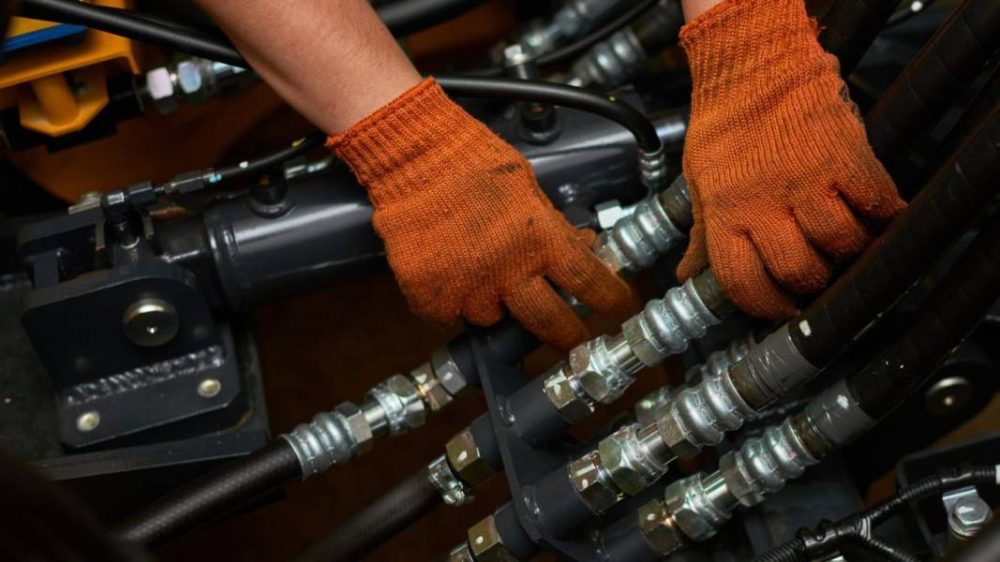There’s a certain satisfaction in tackling repairs yourself, and hydraulic cylinders might seem like just another challenge to conquer. But before you grab your wrench and dive in, it’s crucial to know when your DIY spirit should shift gears toward seeking professional help. While minor leaks or adjustments might fall within your tinkering domain, venturing into complex repairs can be like entering a mechanical labyrinth, fraught with unforeseen dangers and potential pitfalls. This article serves as your roadmap, helping you navigate the terrain of hydraulic cylinder repairs and identify when it’s time to call in the experts. We’ll delve into the intricate world of remanufacturing, honing, and intricate component rebuilds, highlighting the specialized skills and equipment needed for these tasks.
Knowing your limits isn’t a sign of weakness; it’s a mark of responsible action, ensuring the safety and longevity of your equipment, and ultimately, your well-being.

Situations Demanding Professional Expertise
While you might be a whiz at fixing loose connections or basic leaks, venturing into the territory of cylinder remanufacturing is like entering a whole new ball game. This process involves dismantling the entire cylinder, meticulously inspecting and replacing worn components, and essentially rebuilding it from the ground up. Specialized equipment, like honing machines and pressure testers, are essential for ensuring precision and functionality, and attempting this without proper training can lead to more harm than good.
Speaking of precision, honing the cylinder barrel requires laser-sharp focus and specialized tools. Picture it like resurfacing a road – any unevenness can throw the entire system off balance, leading to leaks, reduced efficiency, and even component failure. While the idea of a DIY honing project might sound tempting, the risks associated with improper technique are simply too high.
Now, let’s talk about component rebuilds. Each internal component within your cylinder, from pistons to valves, is crucial to its smooth operation. Rebuilding them requires specific knowledge and tools tailored to each part. Imagine trying to rebuild a car engine with just a screwdriver and duct tape – the outcome wouldn’t be pretty, and the same applies to complex hydraulic components.
But complexity isn’t just about physical repairs. Diagnosing intricate faults beyond basic leaks or pressure issues requires advanced diagnostic skills. Think of it like solving a medical mystery – misdiagnosis can lead to further complications, which might mean costly downtime or even equipment damage with hydraulic systems. While basic troubleshooting is admirable, for complex issues, seeking the expertise of a trained professional is the smartest move.
Finally, let’s address the elephant in the room: safety. High-pressure hydraulic systems are no joke. Working with them without proper training exposes you to the risk of pressurized fluid leaks, component failures, and even personal injury. Just like you wouldn’t attempt electrical work without understanding the dangers, approaching complex hydraulic cylinder repairs with a DIY mindset can be a recipe for disaster.
Benefits of Hiring a Professional
Let’s shift gears and highlight the undeniable benefits of entrusting these tasks to the capable hands of professionals. Imagine your cylinder as a prized race car – pushing it to its limits requires a skilled pit crew, not just a weekend mechanic. Here’s why handing the wrench to a professional is your winning move:
Expertise and Experience: Forget deciphering cryptic manuals or scouring online forums for answers. Professional technicians in a hydraulic cylinder repair shop possess in-depth knowledge and experience with a wide range of cylinder types and potential issues. They’ve seen it all, from intricate leaks to baffling pressure drops, and their honed skills allow them to diagnose and repair efficiently, minimizing downtime and saving you valuable time and money. Think of them as hydraulic detectives, solving mysteries that would leave even the most seasoned DIYers scratching their heads.
Specialized Tools and Equipment: Imagine trying to rebuild a watch with a hammer and screwdriver – the results wouldn’t be pretty. The same applies to complex hydraulic repairs. Professionals have access to a specialized arsenal of tools and equipment that most DIYers simply can’t replicate. From honing machines that ensure microscopic precision to pressure testers that guarantee optimal performance, these tools are essential for ensuring repairs are done right the first time.
Peace of Mind with Warranty and Liability: Even the most meticulous DIY project comes with a certain level of risk. With professional repairs, you gain the invaluable peace of mind offered by warranties and liability protection. If something unexpected arises, you’re still holding the bag. This assurance is especially crucial for critical equipment where downtime can be costly. Contrast this with the potential risks and costs associated with DIY mistakes – a single misstep could lead to expensive repairs, downtime, and even safety hazards.
Ultimately, choosing professional help for complex hydraulic repairs isn’t just about convenience; it’s about making a smart investment in your equipment’s longevity, efficiency, and peace of mind.
Conclusion
Making an informed decision about repairs isn’t just about fixing a problem; it’s about ensuring the longevity, efficiency, and safety of your equipment. By seeking expert help when necessary, such as cylinder plating services, you can avoid costly mistakes and enjoy the peace of mind that comes with professional care.
So, the next time your hydraulic cylinder needs attention, remember, that shifting gears towards professional intervention can be the smoothest path to a successful repair journey. Let the experts handle the complexities, while you focus on what you do best, knowing your equipment is in good hands and ready to perform at its peak.
HedgeThink.com is the fund industry’s leading news, research and analysis source for individual and institutional accredited investors and professionals



































